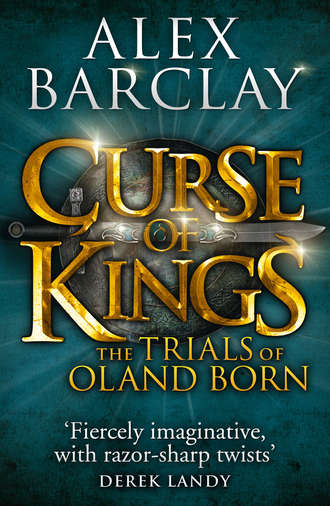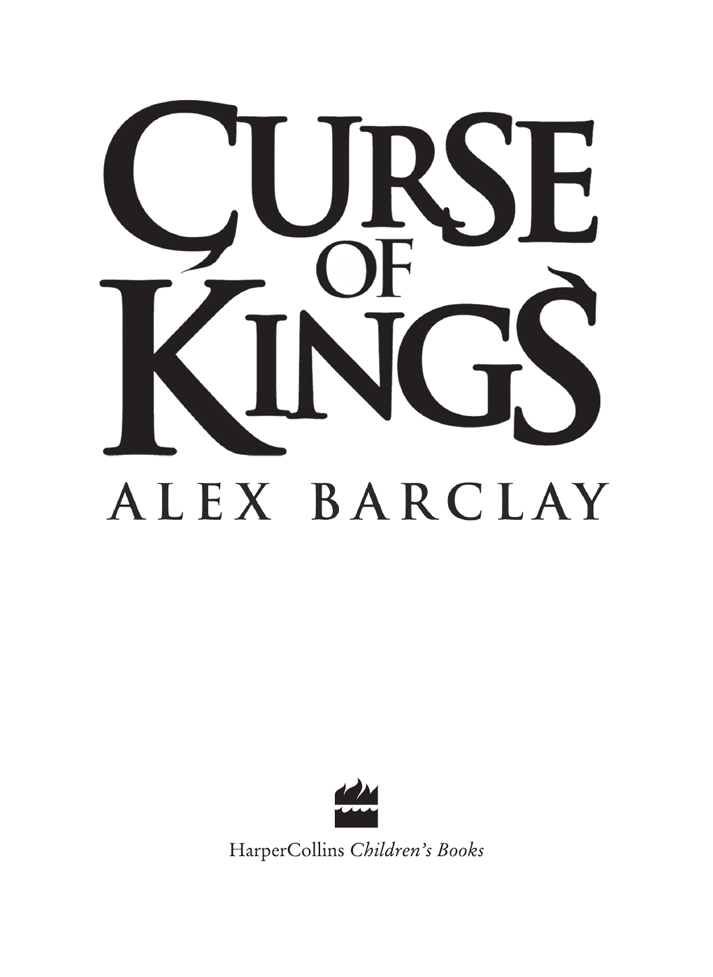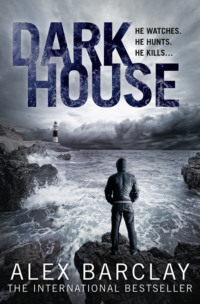
Полная версия
Curse of Kings


To the loveliest loves in all the land:
Lily, Abigail, Sophie, Emily, Michael and Lucy

Dedication
The Archivist’s Oath
Prologue
1. Unsettled Souls
2. Wickham’s Tale
3. The Holdings
4. The Lunatic Prince
5. Starveling
6. Spectator
7. Teal and Gold
8. By Nightfall, Be Gone
9. The Beast He Would Slay
10. Curse Your Souls
11. Downfall
12. Chancey the Gold
13. Census
14. The Archivist’s Oath
15. Black Against the Rising Moon
16. The Honoured Son
17. Oilskins
18. The Other Guide
19. Ten Falls
20. Home
21. The Thousandth Soul
22. Grief
23. Abandoned
24. A Million Steps
25. Pinfrock
26. The Same Hand
27. Prophecy
28. The Bridge
29. Rumours and Fathoming
30. One Man Down
31. All That is Buried
32. Bones
33. Pincer
34. Acquisition
35. Marsh Light
36. Quintus
37. Truth and Loyalty
38. Collapse
39. A Truant Kingdom
40. Dying Breath
41. Black to the Core
42. Rotting
43. Beneath the Surface
44. Hope
45. Engulfed
46. The Legend of Praevisia
47. Frax
48. Stakes
49. Reckless
50. Banished
51. Heartbreak
52. The Evil That Shone
53. Six Scars
54. Hidden
55. Fall at the Last
56. Skyward
57. Descent
58. Sweetling
59. Slaughterhouse
60. Testament
61. Fallen
62. Undermined
63. Fire
64. The Boy Who Never Was
65. Separation
66. The Walled Garden
67. Beloved
68. Grave
69. Poison
70. Affliction
Afterword
Acknowledgments
Copyright
About the Publisher

I am Archivist Tristan Ault.
I vow to tell the untold tales, and my master is the truth.


Wind rushed in from the cold night and quenched all but three of the torches that lit the great hall of Castle Derrington. King Micah, weakened by illness, lay slumped on his throne, his breathing dry and shallow. A towering band of men on horseback surrounded him, flames dancing in their eyes, their cheeks streaked with blood.
Outside, against the beating rain, the king’s most loyal counsel, Villius Ren, rode his white horse across the burning drawbridge and charged through the deserted barbican, through the courtyard and into the great hall.
“Your Highness,” he said, drawing his sword from its scabbard.
King Micah looked up from the shadows, and saw that his trusted servant bore the same blood markings as the pale warriors before him. He bowed his head.
“It is not your betrayal that saddens me, Villius. It is the world and how it has turned to darkness to find its way. And how can we be guided without light?”
The wind whipped around the last of the torches and the room went black.
“You have succumbed, Villius, as the weak and the ignorant do,” said King Micah. “Since you were a child, happiness held no value for you. I was foolish to think that you could change. You have defeated a man on his deathbed. Your courage is commendable.”
The filthy white horse reared up on its hind legs. Villius Ren wrenched the reins, the hot breath from his laughter misting the cold air around him. He said just one word: “Release.”
“Farewell,” said King Micah, “but know that this is not the end.”
When all the arrows had arced from their bows, Villius Ren jumped down from his horse and went to where King Micah lay bleeding. One by one, Villius twisted the arrows in his master’s wounds, and tore them free. King Micah’s eyes shot open. He reached out and gripped Villius Ren’s arm. The two men locked eyes. Villius felt as if his flesh had been sucked towards the bone and released, as if he had been drained, then replenished. A feeling of sickness and loss swept over him. He staggered away from the king, whose eyes had closed, whose chest had ceased to rise.
Villius Ren and his warriors had laid claim to the Kingdom of Decresian, but only by defeating a dying man. Henceforth, to all but each other, they would be known as The Craven Lodge.
The Curse of Kings was cast.
Somewhere in the castle, a baby cried.


Mostly, the people of Decresian were poor, angry and sleep-deprived, for, in a walled garden in the grounds of Castle Derrington, nine hundred and ninety-nine corpses were buried and every night, when the clock struck twelve, their unsettled souls screamed for mercy until daybreak.
It was said they were the remains of the botched experiments of the Evolent brothers, Doctors Malcolm and Benjamin, one-time allies of Villius Ren. For decades, while the people of Decresian slept, the Evolents crossbred humans and animals and they failed – nine hundred and ninety-nine times. The bodies were thrown one on top of the other, often before they had the chance to draw their last breath. It was a final, grotesque indignity in a kingdom of honour and tradition, where the bodies of the dead were held sacred.
Some said it was fitting that the sound of a ruined kingdom was the sound of pain, and that, in their bleakest moments, the people of Decresian found comfort in it. If there were other souls out there screaming in the darkness, unable to rest at night, they knew that they were not alone.
Even The Craven Lodge couldn’t bear to stay at the castle during the kingdom’s darkest hours. Instead, they found courage in the bottles of wine and the tankards of beer they drank; a vicious, concocted courage that sent them rampaging on horseback through Decresian and beyond, lawless and wild. The only person to be found in the castle from midnight was their servant from birth – a young man of fourteen. His name was Oland Born.
It was close to dawn as Oland rushed around the great hall, behind in his nightly task of cleaning up after The Craven Lodge’s banquet. Bones and gristle and potato skins littered the flagstone floor. The air was rank with sweat and liquor and grease. The gaping carcass of a pig still lay on the vast gold-edged dining table. Rings of red wine marked its surface and candle wax had melted into the narrow cracks. As Oland bent to pick up a fallen goblet, he heard the gruff voices and heavy footsteps of his masters. He rolled under the table and lay on his back, arms by his side, rigid.
“What a shambles!” roared Villius as he strode into the room. “A shambles! Where is that runt, Oland Born—”
“Who wants to be bothered with him?”
Oland recognised Wickham’s voice. At twenty-nine, Wickham was the youngest of The Craven Lodge, a short, mercurial man, favoured by Villius Ren as a storyteller. Of all of The Craven Lodge, Oland found Wickham the most tolerable, perhaps because he had never quite reached the violent extremes of the others, perhaps because it was Wickham who had taught him to read. For the first time, Oland realised that anyone who had taught him anything in life was likely a thief, a brute, a killer and most definitely a coward.
“To the Peak with young Born!” said another of the men, this time Hazenby, whose quarters had been so filthy, its scrubbing and airing was the cause of Oland’s delay. Hazenby was seldom to be found when baths were being filled or garments washed. He was speaking of Curfew Peak, the island prison for young criminals, where they remained until their twenty-first year.
Curfew Peak was black and forbidding and, according to myth, crawling with beasts.
Not unlike Castle Derrington, thought Oland.


The Craven Lodge cheered. Oland, alarmed, glanced left and right as they began to pull back their chairs and sit down, their mud-caked soles inches from him.
As Wickham strode the length of the table, Oland could hear the scrape of the stone he had embedded in the sole of the storyteller’s boot. He had added something different to the boots or garments of all ten of The Craven Lodge, so he would always know which monster approached.
Wickham began: “In the depths of Castle Derrington on the night a king was to be overthrown, a boy was born as his father lay dying beside him…”
It was a story Oland had first heard when he was eight years old. It had pained him then, and would pain him always, but he was forced to listen once more.
Wickham continued: “This man, this father of the newborn, had committed many bad deeds, and for this he was bound to be punished. As his wife brought their child into the world, a man in robes of black entered the room and stabbed the child’s father through the heart. Then he turned, dagger in hand, to the young mother lying weeping on the floor, clutching the delivered infant to her breast.
“As she looked up at this insidious intruder, she was possessed by a fierce love for her child, a child brought into a world of instant cruelty. She reached back and grabbed a poker from beside the fire, striking it hard against the man’s face, opening up a bony, bloodied chasm—”
A tankard fell on to the floor, spilling white wine across the flagstones as it rolled towards Oland’s hand. He uncurled his little finger and sent it rolling back out. Wickham, candlestick in hand, bent down to retrieve it.
Oland’s heart started to pound. He was struck with a sensation that enveloped him like a shroud. A fleet of images flashed through his mind, and ended in a vivid scene of dripping blood that quickly fled as Wickham stood up and carried on with his tale:
“The terrified mother crawled past the felled man to the door, and through the deserted hallways of Castle Derrington she ran. Door after door was locked. On she ran. Eventually, she stumbled into the kitchen, and there she found a small recess in a brick wall and a teetering tower of crates. She pulled off the topmost, then the next, then the next and, in the crate beneath that, she laid her silent baby. She scrawled his name on a piece of paper, and pinned it to his chest. That boy’s name was—”
“Oland Born!” roared Villius, reaching under the table, grabbing Oland by the ankle and wrenching him out. He pulled him up to standing. Oland’s eyes were level with Villius’ chin, and he dared not raise them higher. Being so close to Villius’ face, and breath, and spite, repelled him. He was so close now, he could make out the tiny raised scars that marked his jaw like the slashes of a tiny blade.
“What are you doing, you eerie little runt?” roared Villius. “Is your bed not comfortable enough, that you prefer to lie on the floor? Or is spying what interests you? Look at me! Is there someone you have taken to spying for?”
A treacherous man will forever see treachery in the eyes of others, Oland had once read.
“N… n… no,” said Oland. “I… I…”
“I… I… what?” roared Villius. “If you are not here to spy, what is it? What have you been doing all night?”
Despite himself, Oland’s eyes flicked towards the stinking Hazenby, reminding him his earlier work had, ultimately, been in vain.
“Why are you looking at him?” said Villius, grabbing Oland’s face, and squeezing it.
“N… no… no reason,” said Oland.
“This room is in no fit state for our morning revivals!” said Villius. “The Villian Games take place today! The event of the decade! And you’re lying on the floor like a dog!”
“Like the dog he is!” shouted Hazenby.
The Craven Lodge all kicked back their chairs, and staggered up, gathering around Oland, bearing down on him, drunk and roiling.
In the midst of these murky thugs, Oland Born was like a light in the dark. His hair was fair, his eyes pale green, his skin sallow and unravaged by careless living. He had pale, angular lips. As the cheekbones and jawbones of The Craven Lodge had been vanishing under layers of fat, Oland’s were emerging. And though there were slight flaws in the symmetry of his features, his was a face that drew the eye of many, twice over. His body was long and lean, but hidden by loose tunics and trousers. In contrast, The Craven Lodge wore garments that highlighted their spreading girth. Villius Ren was the fittest of his pack and, even as he aged, his shoulders appeared to broaden, and his chest and torso thickened. He had the build of a warrior, and the vanity to retain a private tailor to proclaim it.
Without warning, Villius’ hand shot out and he grabbed Oland by the back of the head, pushing him towards a candle at the centre of the table. Oland gripped the edge of the table to try to stop him.
“Worried your girl-hair might go up in flames?” said Villius, shoving his face closer to the heat.
Oland cried out. He could hear his hair crackle. The smell filled his nostrils. Panicked, he released his grip on the table and grabbed at his head.
The Craven Lodge laughed loudly.
Villius pulled Oland up again. “Shall we cut off his long blond locks, then? A head of short hair won’t ignite… quite so quickly.”
Croft, a dull-eyed sycophant, stepped forward and handed Villius a knife. Oland again kicked out, catching Villius hard on the wrist. The knife spun through the air towards them. Villius flinched, and released him. Oland fell, half twisting, striking his cheek hard on the table, but quickly finding his feet. The Craven Lodge swayed in front of him, then descended, their faces warped with anger.
Oland ran.


The story would always end with Wickham’s dramatic, low-pitched judgement: “To deprive a son of his father is unpardonable.” And Oland agreed.
As Oland ran, he heard footsteps behind him and guessed, from the damp, rasping breath and the clank of his loosened belt buckle, that it was Viande, a true savage, the crudest of The Craven Lodge. He liked to hack and spit, scratch and belch. He grabbed and sneered at the women who visited the castle, calling them sweetlings, never caring for their names.
Oland glanced back and saw a doubled-over Viande try to point at him and speak. He kept running. At the end of the hallway, he took a sharp right into the games room, continuing on through the portrait room. Only one portrait had replaced the hundreds that The Craven Lodge had destroyed. Anyone passing could now admire the broad, leather-shouldered expanse of Villius Ren. His elaborate black chest plate was adorned with an entwined V and R in garnet-coloured leather that matched the flaming corners of his eyes. His stare was defiant, the squirrel-brown of his irises like the unvarnished gates to an elaborate hell.
Oland ran into the hallway. The last room he passed was the throne room. Oland had never been inside it, never even seen the door opened a crack. Its only keyholder was Villius Ren. All Oland knew of it were its two unremarkable doors. But instinct told him that, like the eyes in Villius’ head, what lay behind them was best left unexplored.
Oland ran into the outer ward and came to an eventual stop at the deserted northeast tower. He made his way up the winding staircase that led to the vast library. Here, always, he would be safe, for behind the tall mahogany bookshelves was a hidden room, filled with the rescued culture of the castle: books, plays, portraits and paintings, musical instruments and costumes from the king’s theatre. Oland did not know who had gathered the relics and kept them so wisely from The Craven Lodge.
He had found the room six years earlier, yet in all that time, had explored only a fraction of its treasures. He had added to it his own creations: drawings and ships, and tiny tin soldiers arranged in mock battles. But more valuable than the room’s contents was the sanctuary it offered. Instead of his damp and miserable bedroom, instead of the rattling cavern of the great hall, or the disarray of his masters’ quarters, Oland could hide away here, by the warmth of a log fire that burned, unseen.
He called his room The Holdings… where everything was held dear. Its only keyholder was Oland Born.
Oland closed the door of The Holdings gently behind him. He went to the small table by the fire and picked up one of his recent finds: a book called The Ancient Myths of Envar that had almost toppled off the shelf as he had been looking for another. He opened the chapter on ‘The Drogues of Curfew Peak’ and read:
One mythic beast was four engulfed: vulture, bull, bear and wolf.
Oland read on:
It was said that hundreds of years ago, as the last fracture opened up on the southernmost tip of Envar, the only creatures that remained were a vulture, a bull, a bear and a wolf. As the ground they stood upon began to crumble into the sea, these four beasts vaulted the huge chasm and landed on the black shores of Curfew Peak. And, alone for years on this island-mountain, miles from the mainland, they were transformed, by breeding, into the Drogues of Curfew Peak.
Drogues were seven feet tall, black as coal, their bull-like torsos tapering into thick hind legs that carried their weight like loaded springs. They had rapid-clenching jaws and sword-like fangs that tore quickly through their victims. Each knotted vertebra of a drogue’s spine was visible, even though the flesh that covered it was thick and unyielding, the surface coated with coarse black hair. As a victim lay dying at the hooves of a drogue, his final indignity was to be drenched in vile secretions vomited from the pit of the beast’s insides; secretions that would quickly dissolve its prey, bones and all, without trace.
Oland wondered whether, simply by living among The Craven Lodge, he too was slowly being dissolved.


One hundred of Villius Ren’s soldiers stood on watch in the outer ward every day, filing in from their garrisons by the ten towers he had commissioned when he took power. He had cobbled together a ragged army of one thousand from all across Envar and the precision of their numbers was because of Villius’ strict belief in the Fortune of Tens.
Good fortune was said to come in tens in Decresian. Ten hills bounded the village, forty silver birch trees bordered its square, ten houses lined each of its fifty cobbled streets. Twenty market stalls crowded Merchants’ Alley, all opening at ten o’clock in the morning and closing at ten o’clock at night. But more important than the superstitious grouping of objects was what someone achieved by their tenth birthday and by every decade thereafter. That was the true meaning of the Fortune of Tens.
King Micah had been born at the turn of a century in the tenth minute of the tenth hour of the tenth day of the tenth month – an unsurmountable Fortune of Tens. In contrast, Villius Ren grabbed wildly at tens, taking them in whatever form he could: his soldiers were all in the last year of their teens, twenties, thirties or forties, men fearful of reaching another decade without having achieved their Fortune of Tens. Villius Ren had been haunted by a similar fear until he overthrew King Micah in his twenty-ninth year.
The ranks that clung to the craven of Castle Derrington stank of ill will, desperation and bitter contest.
Oland walked down the spiral staircase from the library, and across the courtyard into the kitchen. As he reached out for the handle of the back door, he heard a rough choking sound behind him. He jumped. When he turned, he saw Viande curled in the corner, snoring and twitching. Someone had tucked him inside one of the dogs’ blankets. Oland quietly put on his boots then slung his bag over his head, securing the strap across his body. Viande stirred and opened one eye.
“Running from Villius Ren… roxworthy,” he said.
Oland flinched at the insult. Prince Roxleigh was King Micah’s lunatic uncle, sent for his ramblings to an asylum on the eve of his twenty-first birthday. Prince Roxleigh was a tall, skinny man with a long face, a slender neck and light brown hair that sat on his head like tumbleweed. In the sunlight, it shone like a halo. Roxleigh had been a popular prince, happiest in the company of the Derrington villagers, brightening their spirits with his jaunty walk and cheery smile, calling out to them with a sweeping wave of his skinny arm.








